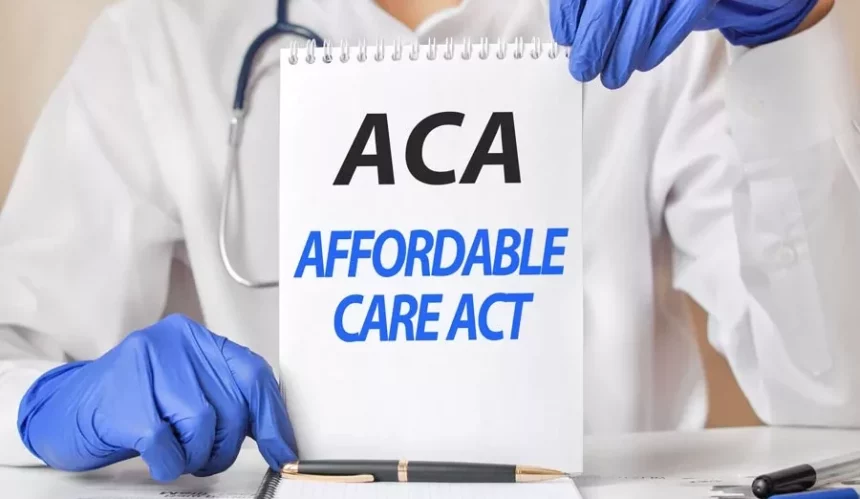Ways to Stay Eligible for a Parent’s Health Insurance Plan
Table of Contents
- Ways to Stay Eligible for a Parent’s Health Insurance Plan
- How Does a Family Health Insurance Plan Work?
- What States Allow You to Stay On Your Parents’ Health Insurance Plans Past the Age of 26?
- Your Best Health Insurance Options After You Turn 26
- Setting Up Your Own Health Insurance Plan
- Identifying Your Insurance Coverage Needs
- Understanding Your Financial Circumstances
- Reviewing Your Options for Insurance
- Using a Parent’s Plan to Attend Alcohol and Drug Rehab
- Frequently Asked Questions About Staying On a Parent’s Health Insurance Plan After 26:
- Verify Your Health Insurance Coverage Today!
- Medically Reviewed By
Growing up can be an exciting experience in many cases, as you are finally able to gain independence and start a new chapter of your life. Of course, with this newfound independence, there are some setbacks that come with getting older.
One of the biggest downfalls of adulthood is losing the health insurance benefits granted by being enrolled on your parent’s plan. Once you turn 26, you are removed from your parents’ health insurance plan, becoming responsible for your own individual coverage.
With this, a question many people find themselves asking is, “can you stay on your parents’ insurance after age 26?”
Keep reading to find out more about how your parent’s insurance plan works, and what to do when you pass the age limit to stay eligible for your parent’s health insurance!
How Does a Family Health Insurance Plan Work?
Once you have been added to your parent’s health insurance plan, you will be allowed to remain on this plan until you are 26. Circumstances that should not affect your position on your parent’s health insurance policy include:
- Getting married.
- Having or adopting children.
- Starting or leaving school.
- Living outside of your parent’s home.
- Not being claimed as a tax dependent.
- Turning down an employer plan for insurance coverage.
While you will usually be removed from your parents’ health plan after turning 26, some states and plans will have different rules. It is important to check with your provider to see when you will lose coverage, and how you can apply for your own plan.
What States Allow You to Stay On Your Parents’ Health Insurance Plans Past the Age of 26?
Most states will require you to be off of your parent’s health insurance plan once you turn 26.
However, eight states may extend coverage past this point, these states are:
- Florida
- Illinois
- Nebraska
- New Jersey
- New York
- Pennsylvania
- South Dakota
- Wisconsin
Each of these states, excluding Nebraska, will allow you to stay on a parent’s plan until the ages of 30 or 31, depending on your circumstances.
For example, New York will only allow you to stay on your parent’s coverage past 26 if you remain unmarried. In the event that you do acquire a spouse, this extended coverage and health insurance eligibility will no longer apply. Here’s an overview of what conditions qualify in each of the eight states that extend coverage:
Florida
Florida residents needing rehab, or other medical services, may remain on their parent’s insurance until the age of 30 under the conditions that they are either a state resident or student, are unable to qualify for another group insurance plan, are unmarried, or have no dependent children.
Illinois
Young adults living in Illinois can stay on their parent’s insurance until 30 if they are state residents, veterans, or remain unmarried up to that point.
Nebraska
Nebraska allows state residents to stay on their parent’s insurance plan up until the age of 30 as long as they are full-time students, unmarried, and/or do not have any other health insurance plans.
New Jersey
New Jersey allows residents to stay on their parent’s healthcare plan until the age of 31 so long as they are full-time students, unmarried, have no dependent children, and do not have any other form of health insurance.
New York
New York state will only allow its residents to stay on their parent’s coverage up until the age of 29 if they remain unmarried, or are unable to receive insurance through their place of employment. In the event that they do acquire a spouse or other form of healthcare coverage, this extended coverage and health insurance eligibility will no longer apply.
Pennsylvania
In the state of Pennsylvania, residents can remain on their parent’s insurance until they turn 29 if they are full-time students, their parent’s insurance is provided through a Pennsylvania-based employer, they are unmarried, have no dependent children, and do not have any other form of health insurance.
South Dakota
South Dakota residents can only stay on their parent’s insurance plan if they are full-time students, and this coverage will only apply until they turn 29.
Wisconsin
Unmarried Wisconsin residents may remain on their parent’s insurance plan until the age of 27 if they are not able to receive employer-provided insurance, or if the coverage provided by their place of employment is more expensive than their parent’s insurance plan.
Your Best Health Insurance Options After You Turn 26
The Affordable Care Act (ACA) has made it easier for people to find individual and group coverage options, as well as other health insurance services through the health insurance marketplace.
This service gives you the ability to research and compare health insurance plans that can best serve your coverage needs all in one place. The open enrollment period for these services will typically end in January so that coverage can begin in either January or February.
Of course, you may qualify for a special enrollment period in the case of a certain major life or qualifying event, such as losing your coverage, moving residencies, getting married, having or adopting a child, or having a household income that falls below a particular amount.
Aside from getting a marketplace plan, there are several other coverage options and ways of navigating the costs of the healthcare system you may want to look into, including:
Employer-Provided Health Insurance
One of the easiest and most affordable ways of getting health insurance is doing so through your employer. Using an employer’s group plan can cover a decent amount of the costs of healthcare, which can make it a much cheaper health insurance option for young adults.
Of course, while these plans will be less expensive and have decent benefits, you will be limited to one or two options provided by your employer.
Spouse’s Health Insurance Plan
If you are married or planning on getting married, another option for getting health insurance is getting added to your spouse’s healthcare plan.
While this may require you and your spouse to pay higher premiums, you will receive coverage for medical expenses and many other comprehensive benefits.
COBRA
COBRA is a health insurance group that began well before the ACA and is the main resource individuals who had gotten laid off use to receive ongoing insurance coverage.
COBRA requires employers that have over 20 employees to extend coverage to those who have lost their employer-sponsored health insurance.
While usually used by individuals who have been laid off, it is also a helpful tool for those young adults who have been removed from their parent’s health insurance plan and are losing health coverage.
COBRA allows a period of 60 days after losing coverage for individuals to apply and will last over a period between 18 and 36 months. However, COBRA plans are expensive, requiring you to pay for all plan costs as well as up to a 2% administrative fee.
In most cases, an average annual family premium for an employer-sponsored health plan costs over $20,000, with most of these expenses being covered by the employer. When using COBRA, the individual will be responsible for these costs.
Individual Health Insurance Plans
If you are unable to continue receiving coverage through your parent’s marketplace plan, getting an individual plan through the ACA marketplace can be a good way of minimizing your health insurance costs, depending on your financial situation and income.
Of course, despite the benefits an ACA marketplace plan can provide, individual plans may still be expensive without subsidies.
This means that you will have to make below 400% of the federal poverty level, which equates to around $50,000 for one person in 2021, to be able to receive lower premiums or premium tax credits that can help cover the costs of healthcare. It is worth noticing that the federal poverty level is updated, so it can be worth looking into recent changes to determine eligibility.
As a young adult, without the help of subsidies, an individual health plan can be expensive. Of course, you may also wish to seek health insurance outside of the marketplace or through an employer’s plan, although this may ultimately be more costly.
Individual plans provided through the exchanges will typically be separated into four categories, which will be based on their premiums and out-of-pocket expenses:
- Bronze health plans have the lowest premiums, but the highest out-of-pocket costs.
- Silver health plans will have higher premiums than a Bronze plan but lower than Gold, and lower out-of-pocket expenses than a Bronze plan.
- Gold health plans have lower premiums than Platinum and higher than Silver, with lower out-of-pocket costs than a Silver plan.
- Platinum health plans will have the highest premiums, but the lowest out-of-pocket expenses.
Platinum health plans are not offered by most insurers, and most individuals will tend to sign up for either a Bronze or Silver plan, as these tend to be more affordable.
Ultimately, when planning on purchasing an individual plan, there are several factors that should be carefully considered, including how much the health plan costs, how much of this cost goes towards your care, and the flexibility of your in-network providers.
Medicaid Coverage
You may be eligible to sign up for a Medicaid plan if you fall into a low-income category. The requirements for this, of course, will vary by state.
Medicaid will provide you with the same type of comprehensive coverage as private insurers, but with much lower costs. These will be based on your specific income, and will require you to meet certain criteria in order to qualify for this coverage.
Expanded Medicaid eligibility may apply in specific situations depending on your state of residence. It is important to check your state insurance requirements in order to see if you qualify for Medicaid health plans.
Catastrophic Plans
Catastrophic health plans can be used by people under the age of 30, or who are dealing with specific difficult situations, including homelessness or other hardships. Catastrophic forms of health plans offer low premiums and comprehensive benefits similar to those provided by standard health insurance policies. Whether you are at or below the federal poverty level does not affect eligibility for these types of health plans.
However, these are often a form of high deductible health plan, meaning you will have larger out-of-pocket expenses when seeking medical care than you might have to pay with another form of a health plan.
Short-Term Health Insurance Plans
Short-term health insurance options can be a good way of securing a safety net for emergency situations over brief periods of time. However, these plans will have limited benefits and can cause you to have to pay large amounts of money on your end.
These plans typically last over a period of a year and can be renewed twice, allowing you to have coverage for up to three years. Of course, you may not have access to coverage for all of your healthcare needs with these plans, including mental health treatment and prescription medications.
This is why it is important to read the terms and conditions of any insurance plan before signing up for one and make sure that your insurance policy is able to cover all of your potential healthcare needs and expenses should they occur.
Setting Up Your Own Health Insurance Plan
Now that you know what types of insurance plans are available to you, you can begin to prepare yourself for signing up for your own healthcare plan once you turn 26. There are several steps that will go into this process, including:
- Identifying your health insurance coverage needs
- Understanding your financial circumstances
- Reviewing your options for insurance, including if you can stay on parents’ health coverage
Identifying Your Insurance Coverage Needs
Once your 25th birthday rolls around, it is important to start thinking about what your needs are in terms of healthcare so you do not lose coverage. Although you may be able to enroll during a special enrollment period if you lose coverage, it pays to be prepared nonetheless. There are many things that a young adult may take advantage of when on their parent’s health insurance plan, such as vision and dental coverage.
While the rest of your physical health may be in good shape, your eyes and teeth are just two aspects of your health that will require regular check-ups throughout your life.
With that being said, other medical emergencies can come up at any point in your life, especially as you begin to navigate life without the help or guidance of your parents.
Having a health insurance plan already set up can significantly help minimize your concerns over the cost of healthcare should these medical issues come up.
Understanding Your Financial Circumstances
When looking to set up your own health insurance plan, understanding your financial capabilities will be one of the most important aspects of getting coverage. After all, independence comes with a number of financial responsibilities, including rent, car insurance, phone bills, and much more.
Setting up a budget can help you determine what you are able to afford in terms of insurance, and how you can best utilize your resources.
Reviewing Your Options for Insurance
There are many insurance plans and options that will be available to you once you turn 26. If you are employed, it is important to ask your employer about what insurance benefits are available to you through your job.
If you are unable to receive employer-sponsored rehab benefits, coverage is available through the open enrollment period of the ACA Health Insurance Marketplace. Of course, the best deals for dental and vision insurance will come through individual plans with reputable carriers. You should also be aware of the special enrollment period that can let you enroll in health insurance through the Marketplace when you ‘age out’ of other forms of coverage.
You can use an insurance broker to help you find insurance plans that are best for your needs and financial capabilities, or online directly through a specific insurance company. The latter may allow you to receive promotional deals and savings on your out-of-pocket expenses.
These individuals will also let you know if you can stay on your parent’s plan once your turn 26, as they should be knowledgeable about the laws in your state as well as able to find out the details of your health plan in particular.
Using a Parent’s Plan to Attend Alcohol and Drug Rehab
If you are looking to attend addiction treatment using a parent’s plan, this can be a great way to get help to overcome issues with drugs and alcohol with less out-of-pocket costs. Many young people go to rehab using their parent’s insurance, and it can make a significant difference financially. In most cases, insurance will become more expensive when you reach age 26, and your insurance company will likely change as well.
Taking the opportunity to find treatment while still under a parent’s insurance can be the wisest option for many seeking rehab at or before age 26. As a young adult, the goal of finding addiction treatment and beginning a journey into sobriety and recovery should not be limited by your insurance coverage options for rehab.
Seizing the opportunity to attend rehab while you are able to stay on your parent’s plan can open a world of options and help you pay for addiction treatment with far fewer out-of-pocket costs. If this is your situation, take a moment to reach out to our dedicated recovery representatives at Find Addiction Rehabs.
No matter your type of health plan, we can provide options for rehabs nationwide, entirely confidentially (even from your parents), and within minutes!
Frequently Asked Questions About Staying On a Parent’s Health Insurance Plan After 26:
Is Health Insurance Necessary In Your 20s?
While losing coverage can be an intimidating situation, the good news is that having your own insurance is not required in most states. Excluding California, Massachusetts, New Jersey, Rhode Island, Vermont, and the District of Columbia, health insurance is not a requirement for state residency in the US.
Of course, that does not mean it isn’t a good idea to have this coverage. Accidents and sudden illness can happen at any age, and not having insurance when these incidents come up can deal you a huge financial blow.
This can even lead many uninsured individuals to put off getting help, causing their health problems to only grow worse over time. This can not only be extremely detrimental to their physical and mental well-being but will only rack up even heftier financial fees in the future.
Ultimately, getting a personalized form of health insurance plan is your best bet for making sure your health is well cared for and covered, no matter how old – or young – you are.
Do I Lose my Parents’ Insurance the Day I Turn 26?
It depends. If you have health insurance coverage through a parent and their workplace policy, your actual coverage will typically terminate your plan and you will lose coverage on your 26th birthday. It is still worth checking through their employer or plan.
A few states and even some health plan providers have different policies. If you are on a parents health insurance Marketplace plan, you would still be covered until December 31st of the year when you turn 26. This also can vary by state laws, so look into your state laws specifically for an exact understanding of when you can remain covered by a parent’s plan.
It is worth noting that the Open Enrollment period of the Affordable Care Act extends to January 15th, and also considers recent aging out as a criterion for special enrollment period eligibility.
Can I Use My Parent’s Insurance for Drug Rehab up to Age 26?
The short answer is yes, if you stay on a parent’s health plan, you are often able to cover the majority of the costs of drug and alcohol rehab. Once you turn 26, the options for coverage will depend on your own income, and the types of plans you are eligible for will change. Though you may have coverage with an employer’s plan on your own, it is often advantageous to consider using a parent’s plan before you turn 26.
Verify Your Health Insurance Coverage Today!
Getting on your own health plan can feel intimidating and stressful, especially if you have only just recently been removed from your parent’s plan. Fortunately, getting set up on a new health insurance plan can be made simple with the right help and resources.
Once you have your own plan, knowing what you are covered for will be the next important step in balancing your medical expenses.
If you or another dependent individual on your plan is in need of addiction treatment, a Find Addiction Rehabs representative can help you verify your insurance and find rehab programs that work with your health care coverage. Call our 24/7 hotline and get answers today!
Nicole Rogers is an experienced and accomplished writer with special interests in the fields of Anthropology, English, and behavioral health, and has written countless articles for newspaper publications, institutional research journals, and Find Addiction Rehabs.
Her alma mater is Florida Atlantic University in Boca Raton. Nicole hopes to spread awareness of and combat the stigmatization surrounding addiction and substance abuse treatment through her writing and work in the field.





